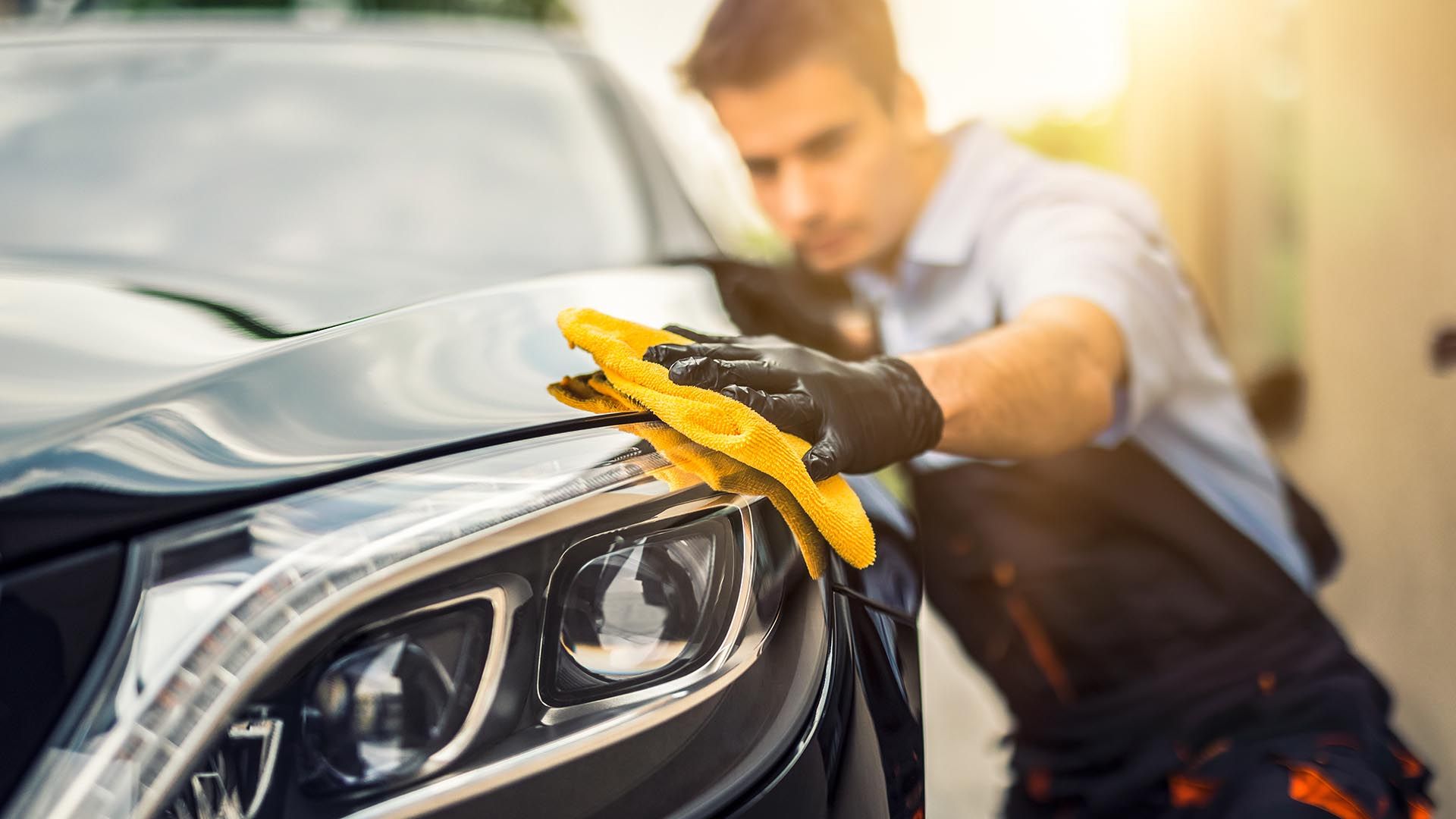AUTONEWS
 Tips to keep coronavirus out of your car
Tips to keep coronavirus out of your carSocial distancing and strengthening hygiene habits, improving the way we wash our hands and disinfect them, decrease the chances of being infected by coronavirus. But this effort is useless if we continue to handle potentially contaminated objects, be they the mobile phone or the car. Both should be given the same attention as regards immunization, if we are to continue to avoid the disease that has infected 1.5 million people worldwide and has killed 87,700, numbers which (unfortunately) are constantly increasing.
It is not yet known all about this new virus that came from China, but it is already known that, like other similar germs, it also has a protective layer of protein and fat. It happens that any soap – from blue and white, cheaper, to the softest, smelling and most expensive-consists of molecules that attack fat, undoing the protective layer of the virus, ending it. This is provided that they are in contact for long seconds (experts point to 20 seconds), and hence the need to wash hands for a long time. 70% alcohol proceeds equally and faster.
Why cleaning and disinfection?
Cars are one of the dirtiest” objects " with which we contact daily, capable of spreading all kinds of diseases. It is already known that coronavirus is able to remain active on certain surfaces for more than a week, which raises additional problems in the case of shared cars. This is the case for taxis or carsharing cars, but also for public transport vehicles and shared cars, such as those that are at the service of companies, where they are used by several employees.
Even in the family car, if used by the father, mother and children, all care is little, to prevent, if any of them are infected, the Covid-19 does not spread quickly to the rest, which is avoided only if we strengthen the cleaning and disinfection of the vehicle.
Points to consider
There are several places where we touch constantly – us and everyone who uses the vehicle. Outside, it is the door closures and the fuel tank access cover, where it is easy for even passing pedestrians to splash and cover them with contaminated droplets.
Inside, the probability of contacting the virus is lower, but not non-existent, and the most problematic places are those with which we contact more regularly. The most obvious are undoubtedly the steering wheel, the levers of turn signals, lights and gearbox, in addition to the levers or buttons that we use to regulate the seat and the handles of the doors and controls of the windows. But you should not forget the central screen, especially if it is touch, the interior rearview mirror and the entire dashboard and console, where it is easy to touch or place the phone.
We must also take into account the places we come into contact with in the rear seats and in the luggage compartment, and it is essential to start by removing all the old objects, papers and handkerchiefs that tend to accumulate in the door bags, as these act as a magnet for viruses, bacteria and fungi.
Interestingly, there is no need to overdo it
To wash the exterior of the vehicle it is enough to visit the washing machine more regularly and, in the intervals, spray the handles with alcohol. The cabin is more complex and time consuming. 70% isopropyl alcohol is very popular among professionals who clean and disinfect vehicles, since it is relatively "sweet" to the plastics, fabrics and skins used inside, still ensuring that the virus does not escape. However, it should not rub violently, as this will discolor the surfaces, leaving an undesirable mark.
Choosing to wash a car with water and interior detergent is also a solution (with the necessary care), while for the seats, whether they are covered with leather or fabric, there are specific products. There are also those who opt for Steam Cleaning, which is equally effective. Everything is worth to avoid resorting to a company specialized in these works, to the extent that it implies putting inside your car a stranger who may be contaminated, the is not very advisable these days. And do not forget about carpets and carpets, because that's where everything that falls out of your hands – yourself and, above all, children will stop.
What not to do
There are chemicals that guarantee deep cleanings. However, they also leave deep marks on the surfaces with which they contact. This is the case for leachate and ammonia-based products.
Pay particular attention to the materials you want to clean and use the ideal ones for the fabrics to wash them, leaving those of the skins for the surfaces coated by this material, whether it is true or synthetic. And pay particular attention to the steering wheel, because if the sun already tends to dry it, resorting to more aggressive chemicals may be the end of it. With the aggravating that a new one can be more expensive than you think, especially if it has many built-in controls and airbag. Care to take into account
It should be borne in mind that, although cleaning products and isopropyl alcohol (or isopropanol) are very 'friendly' to the interior materials, they are not intended for regular washing, either daily or, at the limit, weekly. This need for disinfection, the fruit of Covid-19, can excessively deteriorate plastics, skins and tissues, so it is advisable to follow a period of treatment after immunization. To the laia of what happens to the hydration of the hands, when you abuse the dishwashing without gloves.
There are good products on the market to protect skins, without making them greasy or slippery (not advisable for the steering wheel), which moisturize these surfaces preventing them from deteriorating. With the tissues used in the seats and, in some cases, in the doors, the same happens, and the treatment is not necessary to follow each disinfection operation. But some regularity will be welcomed.
What about the air conditioning?
The air conditioning, which satisfies us both by heating or cooling the interior, but above all by reducing its humidity, is traditionally a machine for spreading diseases. From bacteria to fungi, going through viruses, it can come out of everything a little bit through those vents. Fortunately, there is something that can be done to prevent greater evils.
Since at the moment it is not recommended to visit a company specializing in disinfecting air conditioners, the solution involves replacing the air conditioner and the cabin filter. More importantly, use a chemical (usually available in aerosol form) intended to settle the germs that accumulate in the ventilation system.
Are there other technologies and products?
If you are thinking that there is a magic wand out there that, once shaken, puts the cabin in a "toy", it is best to forget and cling to the vacuum cleaner, brushes and cleaning and disinfecting chemicals. However, during the fight against the pandemic, the Chinese authorities used ultraviolet (UV) equipment to disinfect buses very quickly and efficiently. According to the Chinese, the time required to immunize a bus dropped from 30 to 40 minutes to only 5 to 7 minutes.
But UV's are not a joke. They kill germs, but also attack any part of exposed skin and especially the eyes, so we advise you to adopt other practices and leave UV of this type to professionals. On the way, see here the distance at which the operator gets on the bus to be disinfected by UV lamps…
Mundoquatrorodas

Nenhum comentário:
Postar um comentário